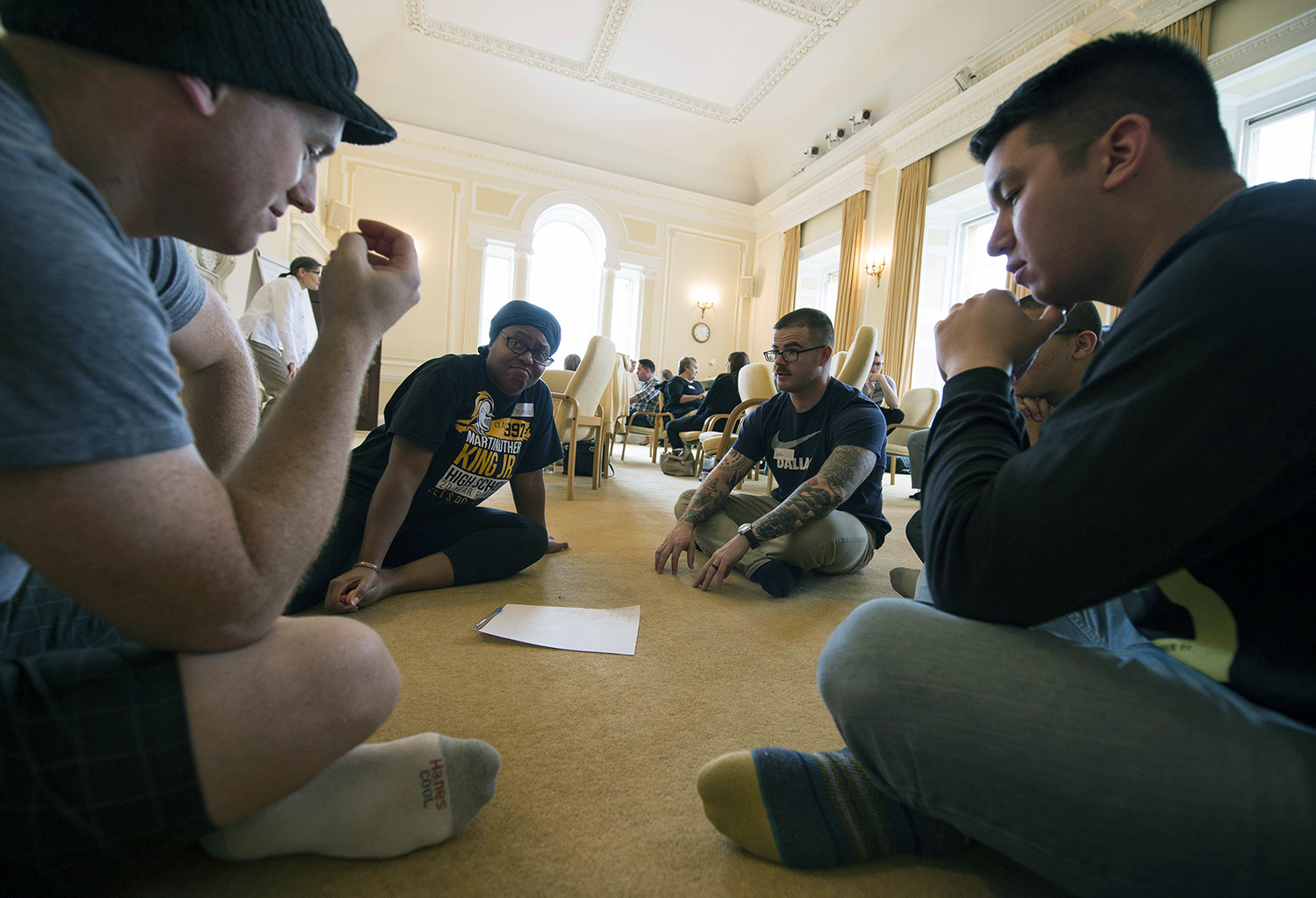There’s an inside joke among practitioners of Buddhist-inspired meditation about the lack of working class representation in the growing mindfulness industry. “The Upper-Middle Way” is a play on the Buddha’s first sermon, which prescribed a middle way between the extremes of self-indulgence and asceticism. But a new study suggests that mindfulness can lower levels of anxiety and depression for those suffering most from American society’s extreme economic and political inequality.
Walk into a meditation studio or attend a weekend retreat and odds are almost everyone will be both white and white-collar. According to the Centers for Disease Control and Prevention, while the percentage of Americans who practice meditation more than tripled from 2012 to 2017, black and Latino people continue to practice at lower rates. Those with a high school education or less, no matter their skin color, are significantly less likely to meditate.
As a meditation teacher, I hear people stress about finding their true calling, feeling disconnected from nature, or President Donald Trump’s latest Twitter outburst. Everyday problems, sure, but different than experiencing racism firsthand or not having enough money to pay rent.
It’s only when I teach at labor union offices—which I do to get out of the mindfulness bubble—that the conversation shifts. Workers say they’re grateful for having a rare moment to think about themselves. Less talk of spirituality; more worry about toxic managers, long commutes, and caring for children.
That’s what makes the findings published in October in the Journal of the Georgia Public Health Association so encouraging. Researchers at Georgia State University wanted to study the effectiveness of mindfulness practices with parents of young children living in poor communities, who, because of persistent poverty, unstable employment, and family disruption, often experience increased feelings of anger, depression, and anxiety. They led 15 parents from one of Atlanta’s poorest neighborhoods, all black and most women, through eight weekly lessons, including breathing exercises, practicing gratitude, and mindful eating. At program end, there was an increase in the parents’ self-reported mindfulness, particularly less reactivity and an improved ability to label thoughts. Also, self-reported levels of anxiety and depression decreased. A number of the participants said they enjoyed the lessons and expressed interest in deepening their mindfulness practices.
This fits with a bevy of recent findings that mindfulness can improve the relationship between parents and their children. Mindful parenting may lower the risk of child abuse, decrease anxiety and depression in children, and more. But that meditation can help those dealing with the highest levels of social and financial instability is especially promising given the mindfulness industry’s blind spots.
“Mindfulness, like positive psychology and the broader happiness industry, has depoliticized and privatized stress,” writes San Francisco State University management professor Ronald Purser in his recent book McMindfulness: How Mindfulness Became the New Capitalist Spirituality. To a growing chorus of critics of so-called “corporate mindfulness,” meditation is being wielded by the likes of Google and Goldman Sachs to pacify employees who otherwise might openly voice their stress and dissatisfaction. Rather than organize a union, employees are encouraged to do “self-care.” Instead of allowing more time off and paying higher wages, corporate executives learn “mindful leadership.”
That’s the rub when it comes to mindful parenting, policing, or any other change in individual behavior. Just like the fact that wearing body cameras has little to no impact on police officers’ use of force, becoming more mindful won’t end poverty, lower the cost of health care, or stop climate change. Only collective action with demands for systemic change will, what Martin Luther King Jr. called, “a radical redistribution of economic and political power.”
Nearly half of residents in the Atlanta neighborhood where the study took place live under the federal poverty level. Almost a quarter are unemployed. The neighborhood is considered a food desert and ranks third citywide for the number of individuals incarcerated or returning from incarceration.
Practicing gratitude, taking time to savor the taste of each bite of food, or noticing sensations in the body won’t help change these conditions for the study’s participants. Still, that they now have a way to ease some of their suffering that can be practiced for free almost anywhere at any time, can only help.
Free meditation cheat sheet
I’ve come up with a cheat sheet to help you start and stick with a regular meditation practice. Get it for free here.
Listen to my podcast Meditation for the 99%
On Meditation for the 99%, I take meditation out of faraway monasteries, expensive retreat centers, and Corporate America, and bring it to work, relationships, and, especially, politics. Listen everywhere podcasts are available.
